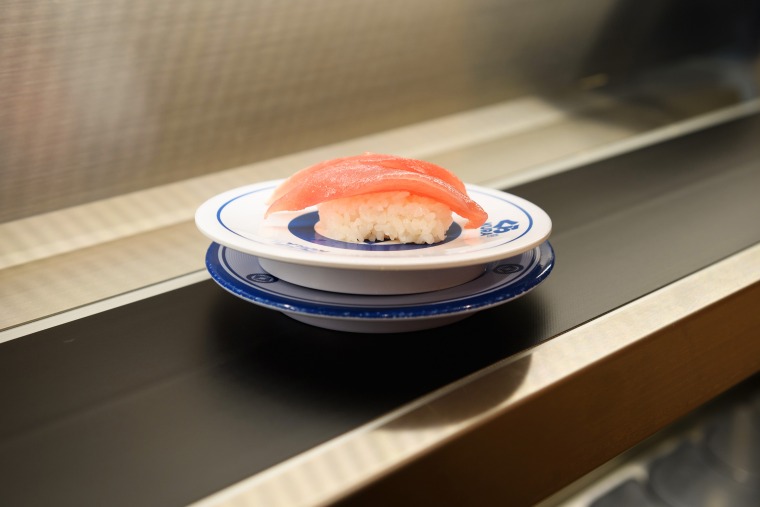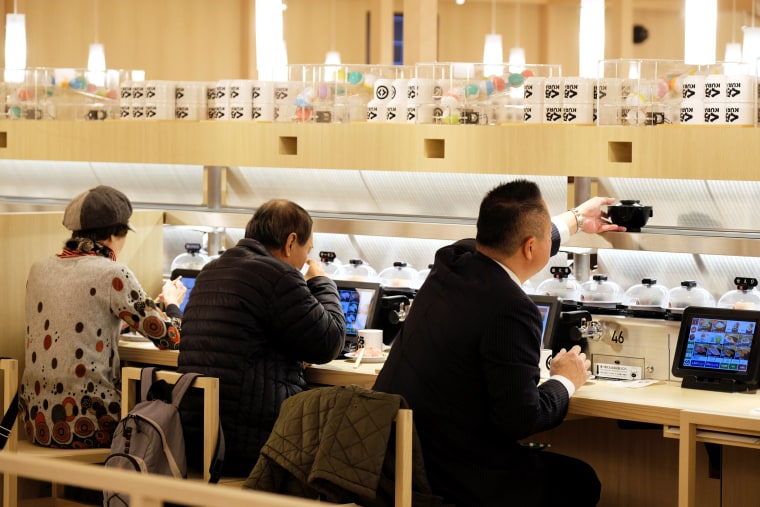TOKYO — A wave of pranks dubbed “sushi terrorism” has made Japanese diners think twice about the country’s iconic conveyor belt restaurants, driving changes to the way chains serve the signature dish and now resulting in arrests.
A series of viral videos showing such unhygienic behavior began popping up on social media late last year, outraging diners in a country known for its high standards of cleanliness and jeopardizing the multibillion-dollar “kaitenzushi” industry.
One included a teenager wiping saliva on a plate of sushi after licking the rim of a cup and placing it back on a shelf. Another showed a diner spraying food with hand sanitizer as it rolled past. shis

As a result, conveyor belt sushi restaurants, whose parent companies have seen their share values slide since the craze emerged, have been scrambling to reassure customers horrified by the footage.
Police in the Aichi prefecture also arrested two men, aged 21 and 19, along with a 15-year-old girl in connection with a video said to show one of them drinking directly from a communal bottle of soy sauce, the force told the Agence France-Presse news agency Wednesday.
The incident occurred on Feb. 3 at a branch of a Kaitenzushi, or conveyor belt sushi, restaurant run by Kura Sushi chain in the central city of Nagoya, police said.
Kura Sushi said in a statement that it would do everything it could to protect conveyor belt sushi, which has been embedded in Japanese culture for decades.

“We sincerely hope that this arrest will serve as a catalyst for widespread public recognition of the ‘crime’ of nuisance behavior that shakes the very foundations of the system based on the relationship of trust with our customers, and we truly hope that there will be no more copycat crimes,” it said.
Another chain said it was getting rid of conveyor belts altogether.
Choshimaru, which has multiple locations in and around Japan’s capital Tokyo, said in a statement that its conveyor belt system would be gradually phased out by the end of April and customers would instead order using a touch panel system.
The move, it said, was “a countermeasure against recent nuisance behaviors that has caused serious damages to the restaurant industry.”
This story first appeared on NBCNews.com.